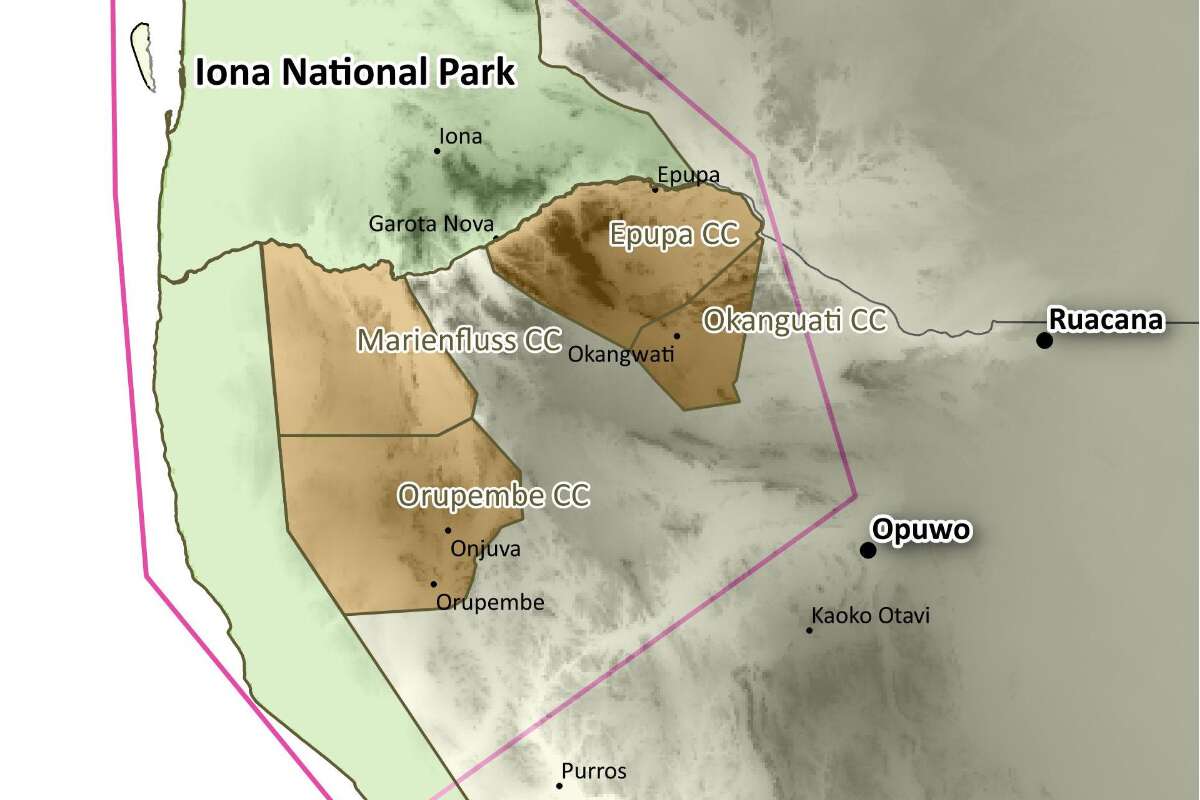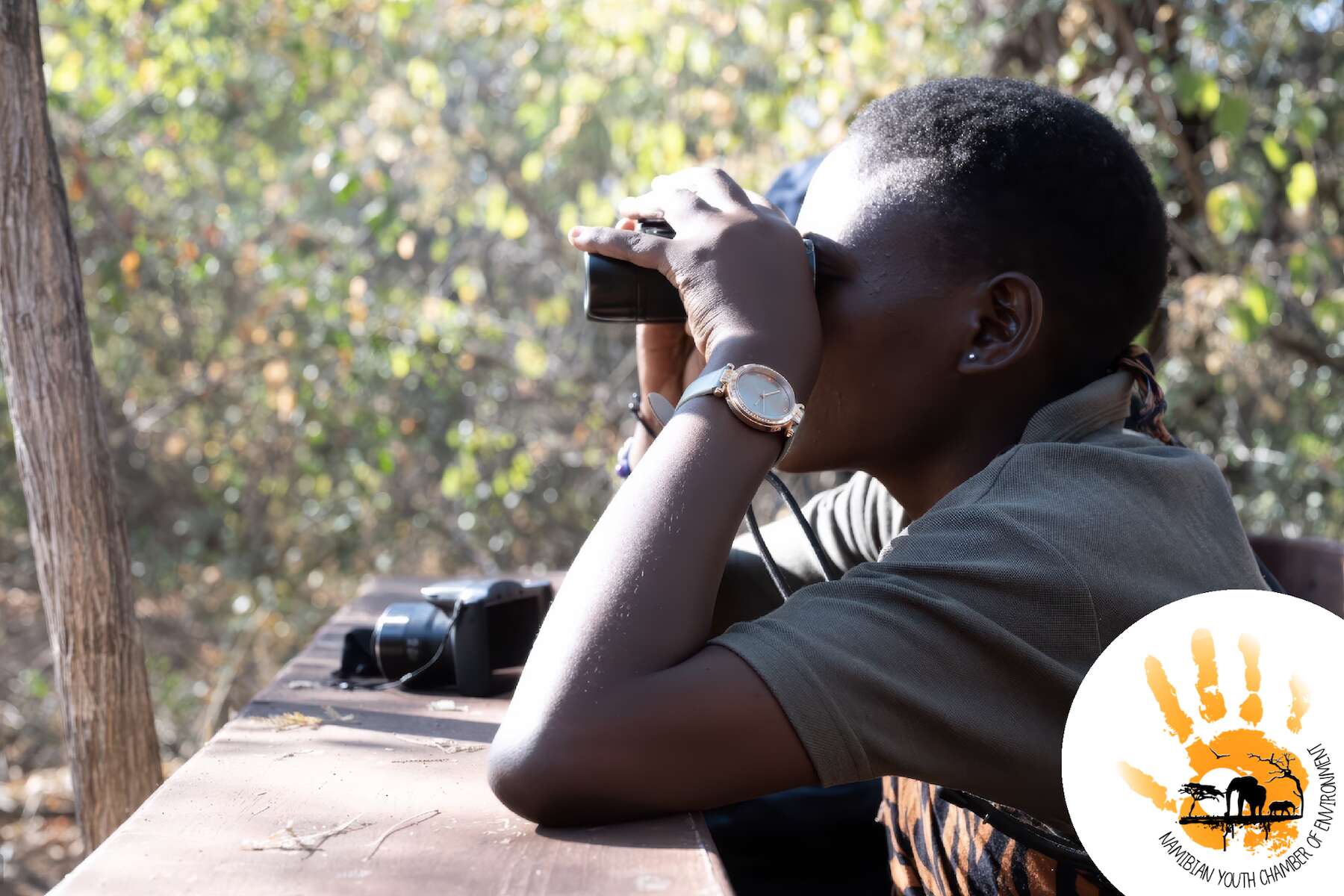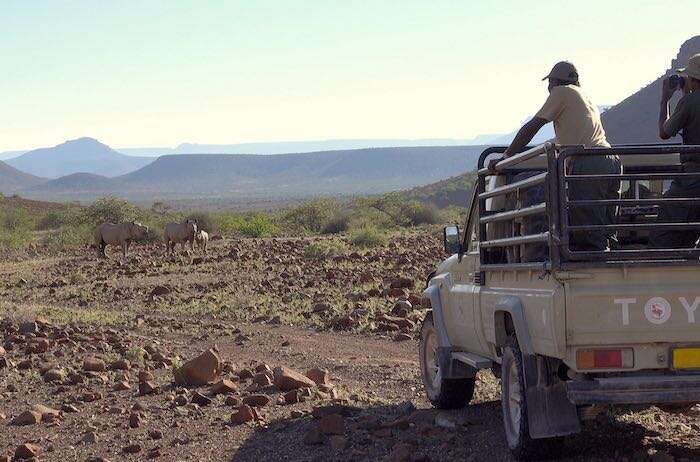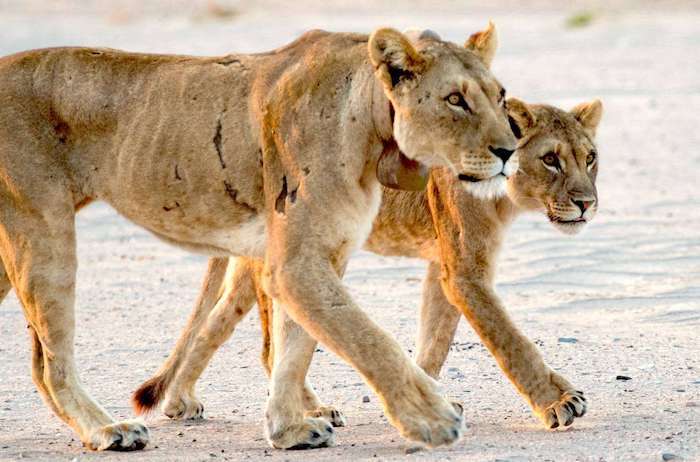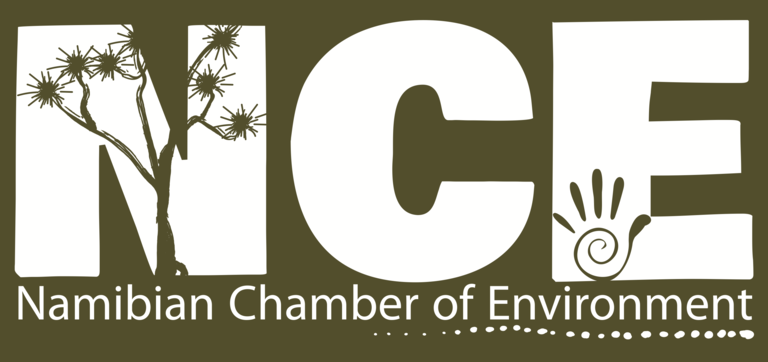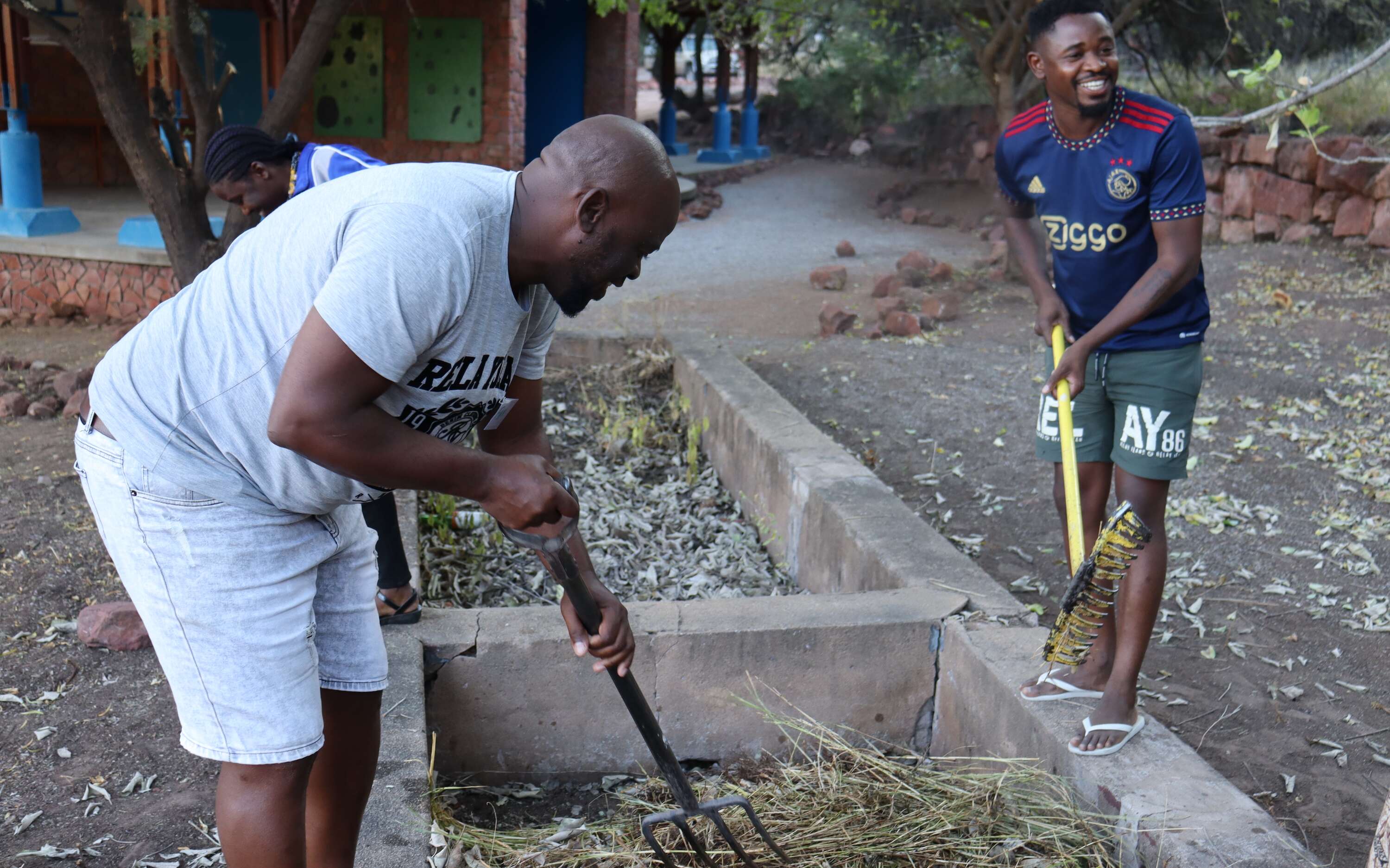
Linking environmental education with democracy
31st October 2024
31st October 2024
Teachers across Namibia are learning to protect their environment, grow their own food and get involved in democratic processes related to sustainable development. As they pass their newfound knowledge of civic and environmental education on to their learners, teachers encourage the next generation of Namibians to make their country a better place.
EduVentures offers training courses on education for sustainable development to hundreds of teachers – and by extension thousands of schoolchildren – through its EduLink programme. In the first phase of EduLink, nine environmental education centres across Namibia were included in a network to promote education for sustainable development. Courses held at these centres reached teachers from all 14 national regions.
The EduLink curriculum included intensive tuition on biodiversity, sustainability, community-based natural resource management (CBNRM) and ocean literacy. Where possible, the courses included field trips for educators to gain firsthand information. Visiting a Namibian communal conservancy, for example, allows teachers to meet people who understand how CBNRM works in practice, thus increasing the depth and accuracy of the information they pass on to their learners.
Ultimately, these courses benefit Namibian children. Each course includes ideas for hands-on classroom or outdoor activities that teachers can use to make learning fun for school children. Topics that can seem abstract or boring can be brought to life and applied in daily life. For example, the Sustainable Development Goals game merges physical activities with informational flash cards to introduce learners to each goal in a highly memorable way.
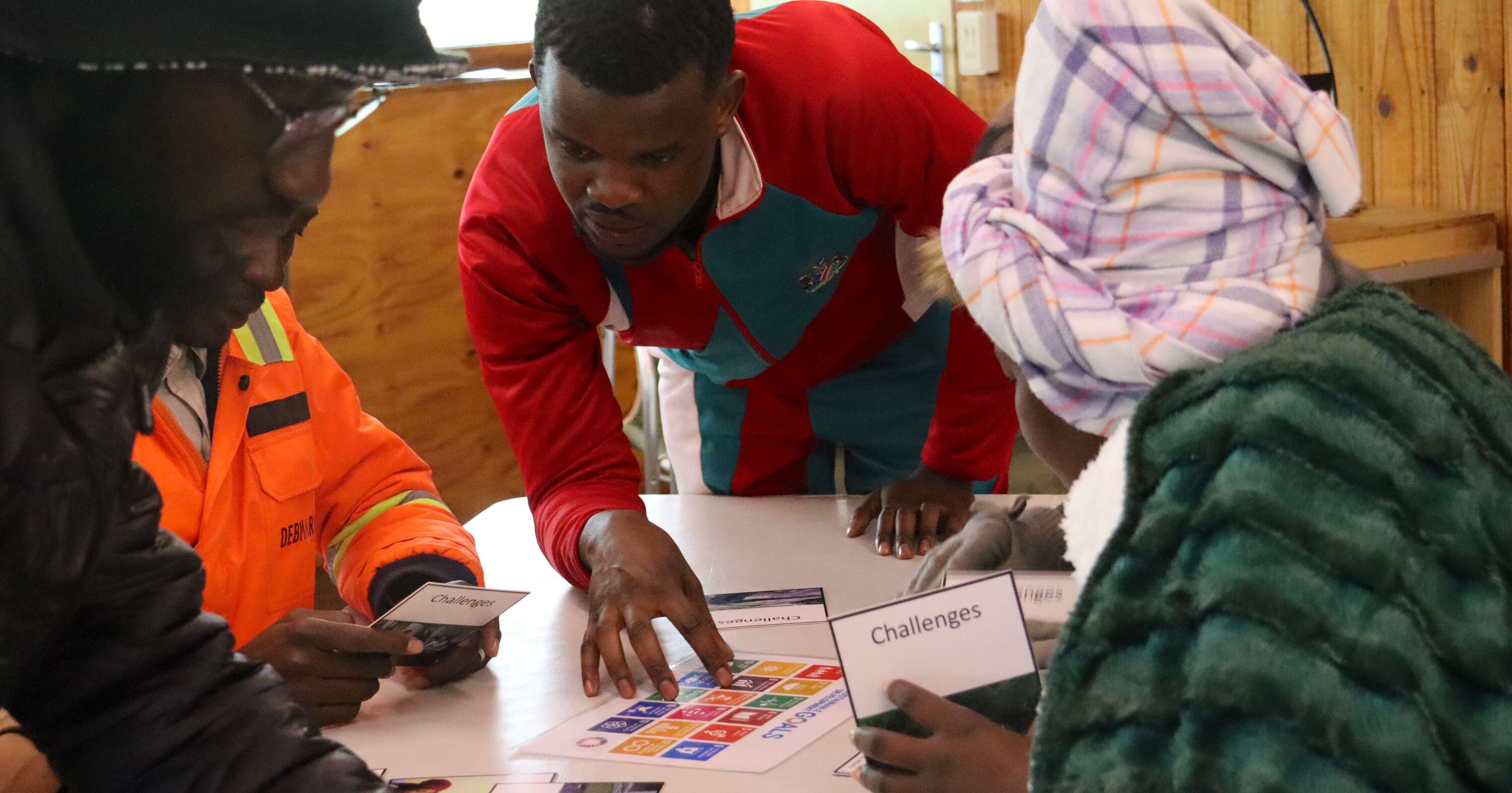
EduLink 2.0 – Exciting new courses
Following the success of EduLink phase one, EduVentures launched EduLink 2.0 with renewed support from Solidaritätsdienst International (SODI) Berlin. The second phase of EduLink expanded its reach to include one more partner organisation – i.e. the Namibia Institute for Democracy (NID) – an extra education centre and three new topics for the curriculum: agroecology, the One Health approach and civic education. Since its launch in late 2021, the team has reached 333 teachers from 180 schools, indirectly involving an estimated 9990 children.
Civic education explains the rights and responsibilities of citizens in a democracy, revealing how government processes work and how ordinary Namibians can engage with them. Since many policies and decisions at national and regional levels affect sustainable development, civic education galvanises environmentally-aware citizens to advocate for a sustainable future.
Our work at the NID includes a strong focus on voter education that explains how each citizen can make a difference locally, regionally and nationally,
explains Ndemufayo Kaxuxuena of NID. Our partnership with EduVentures created an opportunity to reach educators and teachers who will help Namibian children to understand democratic principles and their role in society. These children are our future leaders in political and civil society.
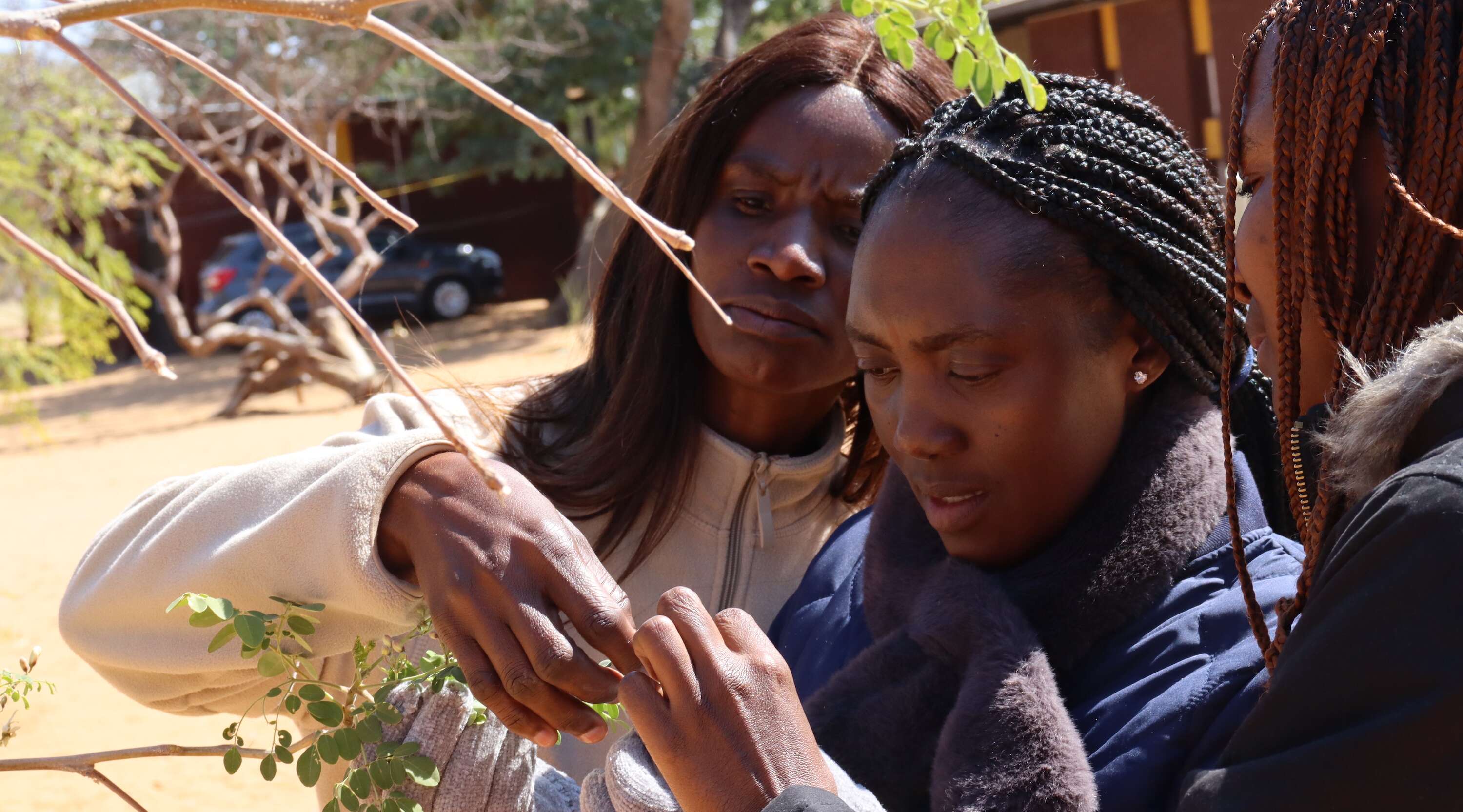
Agroecology is a way of growing gardens and crops that works with nature and is adapted to local socio-economic and ecological conditions. This course provides teachers and unemployed young people (identified by participating schools) with the knowledge they need to make gardens and produce food for their schools and communities.
The One Health approach is endorsed by the World Health Organisation to address human, livestock and ecosystem health as an integrated whole. In this course, teachers find out that environmental health is closely linked with the outbreak of diseases and other health problems that affect people and livestock. Maintaining a clean environment by reducing plastic pollution and open defecation, for example, can improve community health.
Maria Johannes of EduVentures hailed these new courses as a success: We learnt a lot from our partners at NID during their civic education courses, which were well received by the teachers and educators in our network. Our agroecology and One Health subjects encouraged teachers to implement projects at their schools, such as gardens and waste management.
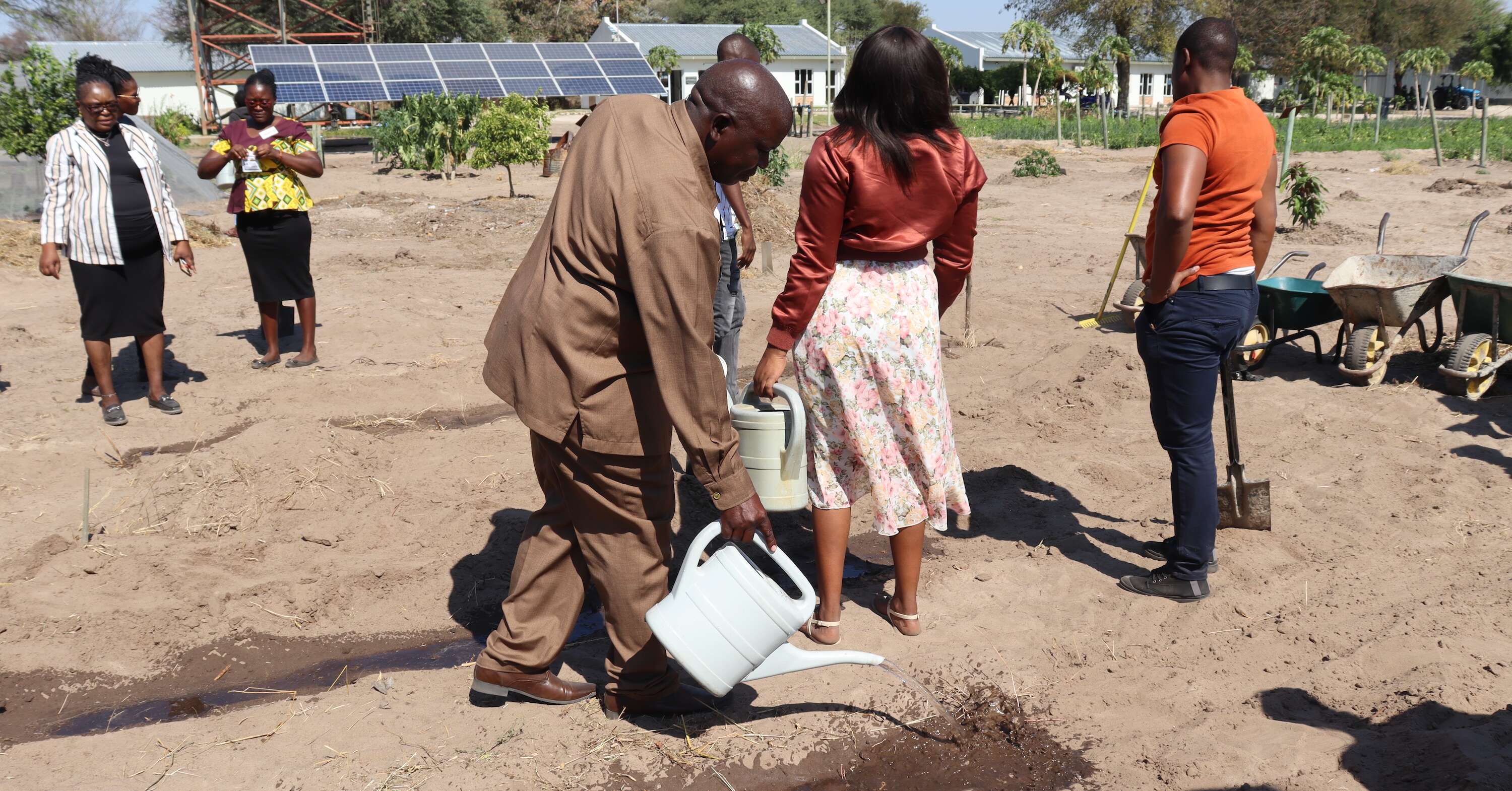
Sustaining momentum beyond training
EduLink goes beyond training sessions to create lasting clubs and networks that put new knowledge into practice. The ten participating environmental education centres are part of a national network supported by the EduLink team. Each of these centres received computers, WiFi routers and SMART boards for interactive lessons. This equipment enables centre staff to access a wealth of information and courses on the Internet, including the EduLink curriculum and all project educational materials. The network uses Google Classroom as a learning management system to share ideas, ask questions and provide long-term support.
Using technology is the way of the future
, says Job Tjikongo, an environmental educator at EduVentures. By connecting education centres and schools to the Internet, EduLink brings global knowledge and ideas into classrooms in remote parts of Namibia.
These efforts help to close the 'digital divide' that makes it difficult for African teachers and learners to keep up with technologically advanced countries in other parts of the world.
At the local school level, teachers establish environmental clubs known as EduCircles that focus on practical activities outside the normal classroom setting. These include getting more involved in lobbying and advocacy on environmental and socio-economic issues in their communities, thus putting their civic education to good use.
Following the agroecological training course, eight teachers successfully applied for funding to establish greenhouse gardens at their schools. The unemployed youth who were trained at the same time can work in these gardens and sell some of the produce to generate income. One teacher built a chicken coop, while another established a recycling centre following their successful funding proposals. Each project has the potential to become financially self-sustaining while demonstrating the principles of the EduLink training courses.
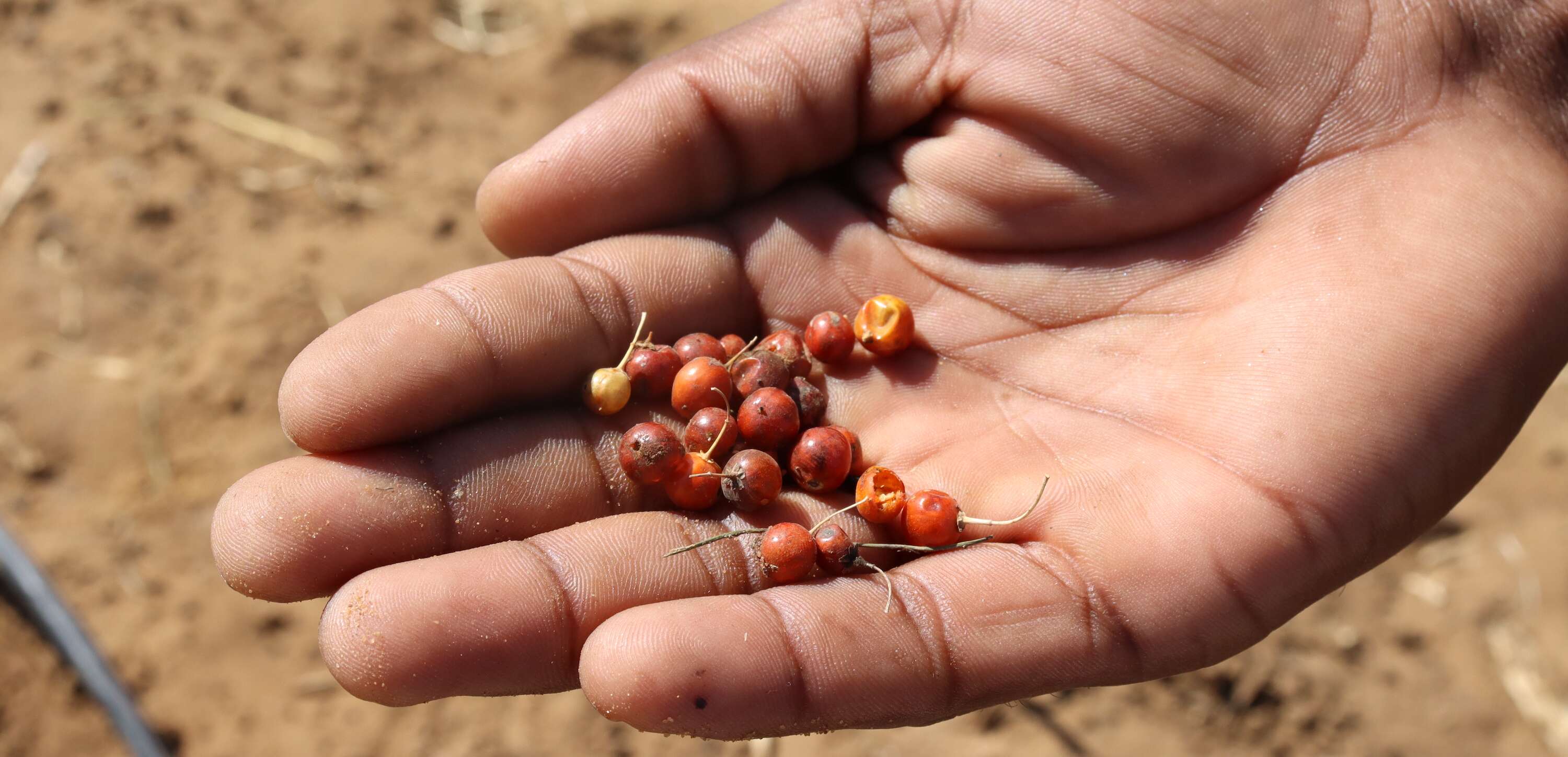
Moving forward together
Although the EduLink project will wind up in early 2025, EduVentures and their partners will continue to support the networks and clubs that were established during the programme. The EduLink project took us on a journey of discovery and expansion
, declares Maria Johannes. While it is coming to an end soon, we are looking eagerly to the future to find new ways of supporting the teachers and educators in our network.
The network of environmental education centres will continue to support each other and reach out to schools within their regions and beyond. The hi-tech Ombombo mobile classroom – a truck containing equipment that is rarely seen in Namibian schools – takes the EduVentures team and their educational approach to every corner of the country. Meanwhile, the EduVentures home base at the National Museum of Namibia in Windhoek will continue to introduce children to their cultural and natural heritage through regular school visits.
Collaborating with NID opened new opportunities to link civic and environmental education, thus strengthening both endeavours. The EduCircles created in towns across the country will use their knowledge of government processes and policy to advocate for positive change in their communities. Engaged citizens – both teachers and children – will use their collective voices to drive sustainable, inclusive development.
For articles on similar topics, please click one of the following options:
For more great articles from Conservation Namibia see below...
Conservation Namibia brought to you by:
We use cookies to monitor site usage and to help improve it. See our Privacy Policy for details. By continuing to use the site, you acknowledge acceptance of our policy.
